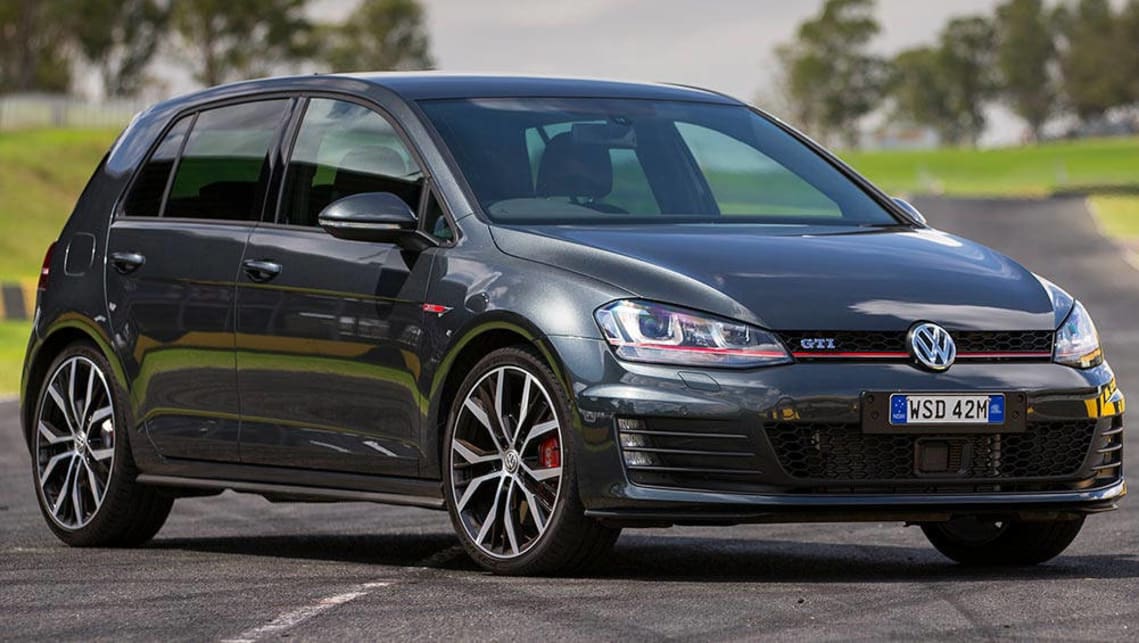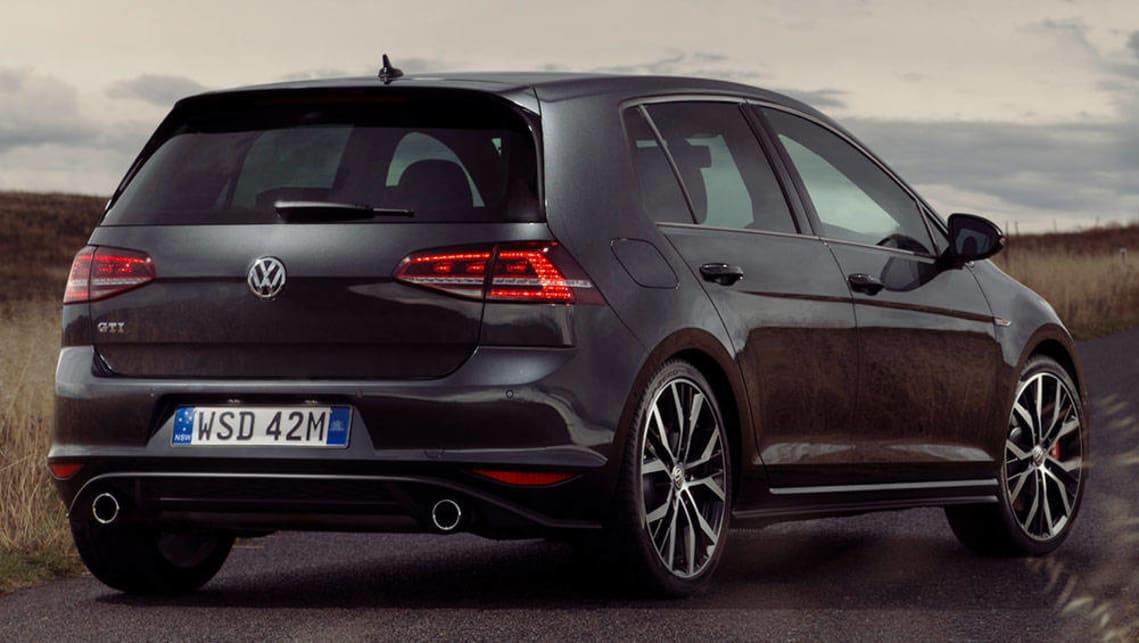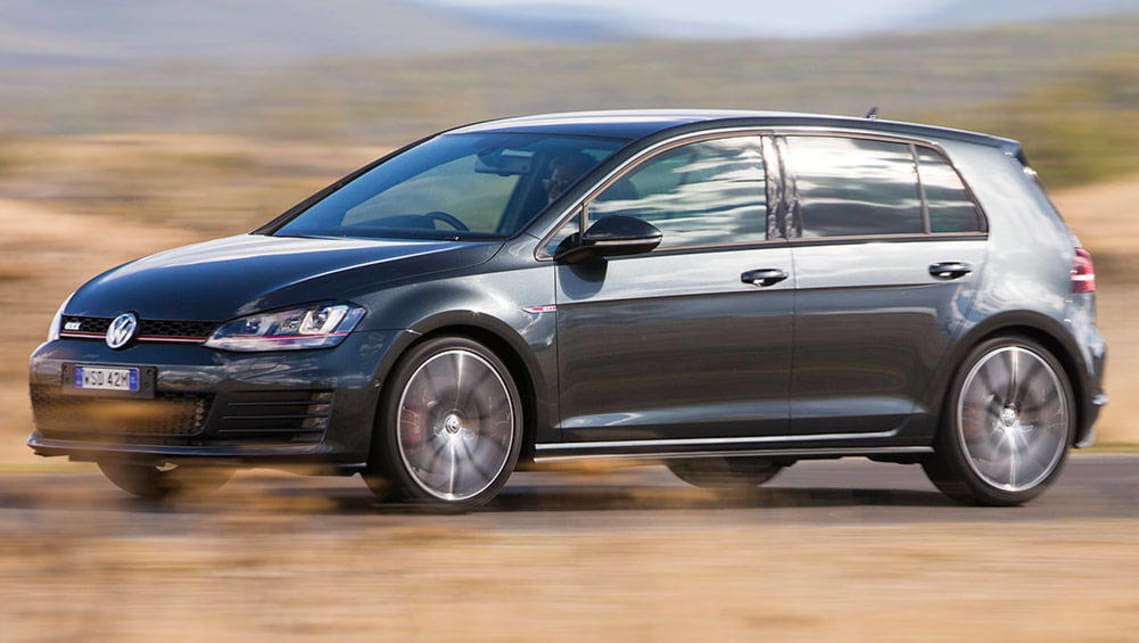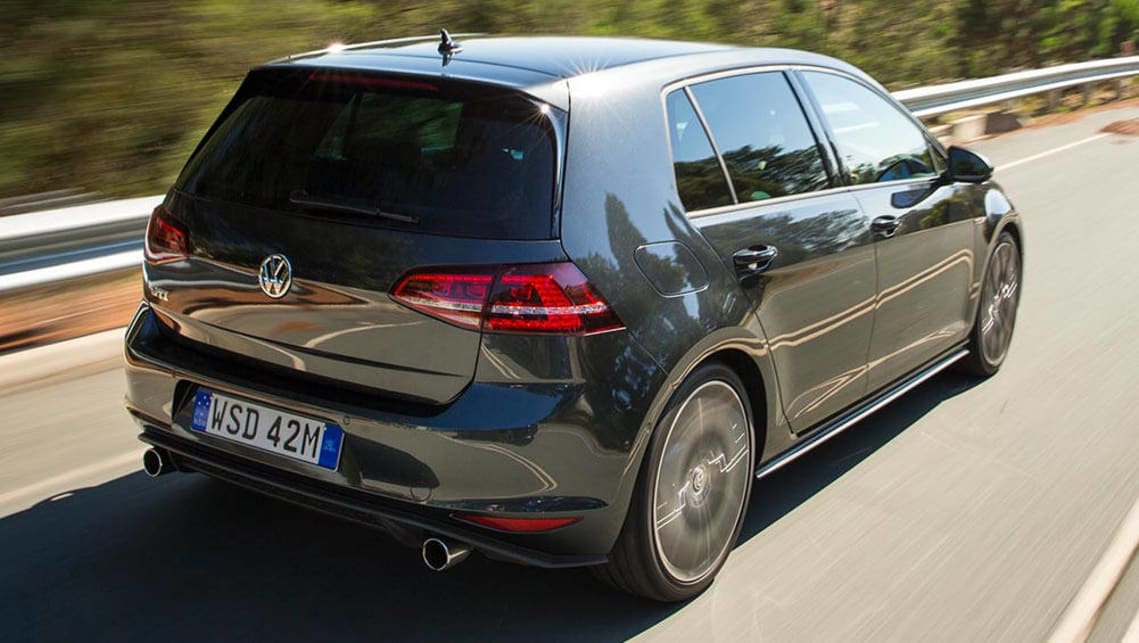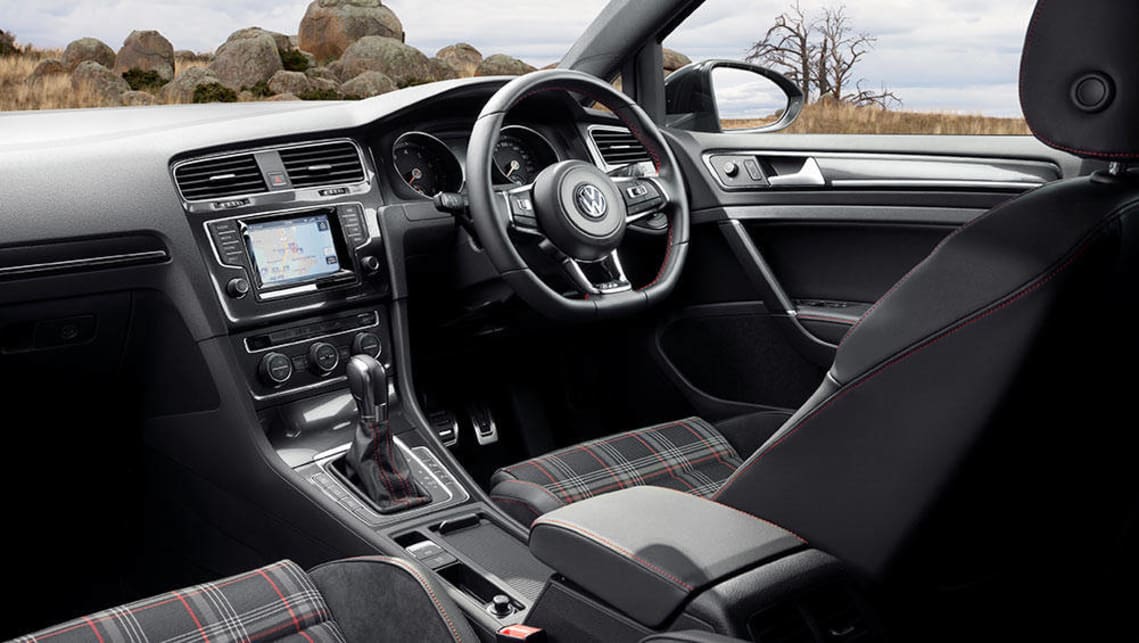Tim Robson road tests and reviews the VW Golf GTI Performance with specs, fuel consumption and verdict.
The seventh generation Golf has been with us since 2012, and has spawned a pretty wide range of models since. Lately, it's been the turn of the most sporting of all the Golfs to go through a bit of a purple patch when it comes to limited editions and special versions.
The GTI Performance falls between the base GTI and the range-topping R, both in power output and price. It also gets key performance upgrades like VW's newest generation electronically locking diff, along with larger brakes and rims, but remains a front-wheel-driver.
The fact that it's an auto only prospect – both the GTI and the R can be had with a six-speed manual – also paints the GTI Performance in a slightly different light.
Design
There is very little to differentiate the Performance from the stock GTI for the casual observer. Bespoke 19-inch rims wearing 225/35 R19 Continental tyres, red brake calipers, bi-Xenon headlights and tinted taillights are changed on the outside. A set of GTI Performance instrument graphics and suede-bolstered tartan seats make up the internal changes.
There's nothing bewinged or intimidating about the GTI Performance, but the larger rims and low ride height both serve to give it real presence.
Practicality
It's a five-door hatchback, so the Golf will always be a handy, practical second family car. The interior, in particular, is well laid out, though the tartan seats might raise eyebrows.
There's space for six water bottles front and rear, for example, while a USB port up front and a second 12v socket in the cargo area are welcome additions.
An adjustable lid on the centre console bin is a nice touch, though the sun visors are way, way too short to be of any use against a rising or setting sun. If your commute is east/west, it gets painful very quickly.
Rear headroom and knee/foot room is good, even for taller passengers.
A space-saver spare wheel lives under the flat boot floor, while the 60/40 split seats fold down to release valuable cargo area that's not compromised by a sloping roofline.
With the seats up, there's 380 litres of luggage room, and 1270 with the seats laid almost flat.
The cloth-covered front seats are firm to the initial touch, and are a smidge too short in the base for taller folks.
Rear headroom and knee/foot room is good, even for taller passengers.
Price and features
The $46,490 GTI Performance sits almost smack bang between the GTI, which starts at $43,490 in DSG guise, and the R, which kicks off at $52,740. It's available only with the six-speed double-clutch transmission and a modestly upgraded 2.0-litre turbo petrol engine.
The additional cost over the top of the GTI no longer gives the Performance buyer as much kit, after a range adjustment late in 2015 that saw bi-Xenon lamps become a standard fitment for the GTI.
Your extra dough buys you seven extra kilowatts, the Performance electronic diff, 19x7.5-inch Sanitiago alloys with 225/35/R19 Continental tyres and bespoke alcantara-bolstered tartan seats.
As well, the brakes are upgraded to R spec. That brings larger front rotors, vented rears and red-painted calipers.
The main option is the Driver Assistance Package, which adds adaptive cruise control, blind spot monitor with rear traffic alert, city emergency braking and park assist, along with active occupant safety (pre-tensioning belts and door locking). It costs $1500.
Competitors around this price point include the Ford Focus ST at $38,990, Renault's soon to be replaced Megane RS265 Cup three-door at $44,000 and the all-wheel-drive Subaru WRX Premium at $44,890.
Engine and transmission
The EA888 engine makes 169kW at 4700-6200rpm, which is just seven more than the stock GTI.
The power output of the GTI Performance is a good match, too.
It makes no more torque at 350Nm, but its curve is fatter, meaning you get the best use of it between 1500 and 4600rpm. It'll knock over the 0-100km/h dash in 6.4 seconds, a tenth faster than the GTI.
Fuel consumption
The GTI Performance is rated by Volkswagen to return 6.6L/100km combined, the same as the DSG-equipped GTI. It needs 98RON fuel, too.
Over 300km of mixed condition driving, our average came out to an indicated 8.2L/100km, though we saw 6.9L/100km over a 50km stretch of sedate highway and city driving.
Driving
Even though I've been testing cars for a while, I'm still not quite attuned to feel a seven kilowatt difference between engine tunes, other than to suggest that the Performance had perhaps a mite more eagerness about it in Sport mode.
I'd suggest, though, that a lot of that eagerness is a result of the Performance diff, which essentially acts as a torque-vectoring system for the front end.
Put simply, an additional clutch pack is actuated by a motor linked into all of the other chassis systems on the car – including traction control, steering and stability control – to send traction to the front wheel that needs it most in milliseconds.
It equates to seamless, seemingly endless reserves of front end grip limited only by the performance of the front tyres, serving to bring out the very best of the excellent MQB platform.
The power output of the GTI Performance is a good match, too, with plenty of pace available but not so much that the front end is overwhelmed.
The sharper feel from the narrow-section 19-inch wheels and the firmer, more modulated feel of the bigger brakes add to the performance of the Performance.
Safety
Seven airbags come standard in the ANCAP five-star rated Golf GTI Performance, along with a rear view camera, ESP and post-collision braking.
As mentioned, the Driver Assistance Package that includes additional active and passive safety electronics is available for $1500 extra.
Ownership
There is a three-year unlimited kilometre warranty on the German-made Golf GTI Performance, while service intervals of 15,000km or 12 months are recommended.
Capped price servicing is available, peaking at $1211 for a 60,000km/four-year service. Pollen filters and brake fluid are not included in the capped price.



